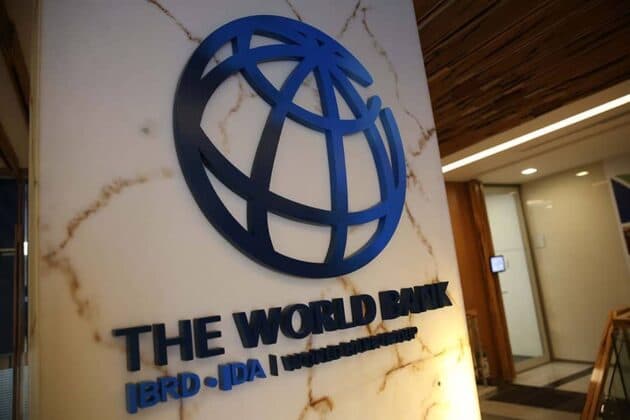We're loading the full news article for you. This includes the article content, images, author information, and related articles.
The global lender is implementing an immutable digital ledger to track its $229 million NYOTA project funds, a direct response to parliamentary concerns over transparency and the troubled history of previous Kenyan youth empowerment initiatives.

NAIROBI, Kenya – The World Bank confirmed on Monday, November 17, 2025, that it is deploying blockchain technology to secure the distribution of funds for the National Youth Opportunities Towards Advancement (NYOTA) Project. The move aims to create an unchangeable and transparent record of all transactions, ensuring that capital reaches its intended recipients among Kenya's vulnerable youth and mitigating risks of corruption that have plagued similar funds in the past.
In a letter dated Thursday, November 13, 2025, addressed to High Court advocate Francis Wanjiku, the Bank stated it had “instituted measures to maintain enhanced monitoring and accountability” for the project. This includes the blockchain framework, designed to track every shilling from disbursement to the end user, and a Grievance Redress Service (GRS) for citizens to report irregularities.
The NYOTA project, a five-year initiative financed by a $229 million package from the World Bank, is a cornerstone of the Kenyan government's strategy to tackle soaring youth unemployment. The project targets over 800,000 unemployed Kenyans aged 18-29 (up to 35 for persons with disabilities) with below Form Four education, offering skills training, business grants, and savings incentives.
The decision to implement a high-tech oversight system comes amid significant scrutiny from Kenyan lawmakers and civil society. In a heated parliamentary session on October 12, 2025, MPs alleged favouritism and a lack of transparency in the selection of NYOTA beneficiaries. Emuhaya MP Omboko Milemba and Funyula MP Wilberforce Oundo claimed that elected leaders were sidelined in the identification process, leading to questions about the fairness of distribution. Concerns about the project's slow rollout and potential for political misuse were also raised in committee meetings in July and August 2025.
These fears are rooted in the troubled performance of past initiatives. The Youth Enterprise Development Fund (YEDF), launched in 2007, and the Uwezo Fund, launched in 2013, have both faced persistent challenges, including allegations of mismanagement, corruption, and low uptake. A 2019 report on the YEDF noted that loan repayment had increased by 30 percent after reforms, but the fund has also registered significant deficits, raising doubts about its sustainability. Critics argue that without robust safeguards, the NYOTA project, which provides grants of KSh 50,000 to beneficiaries, could fall victim to similar issues.
The World Bank's blockchain solution, known as FundsChain, creates a shared, tamper-proof digital ledger. Every transaction, from the Bank's disbursement to the implementing government agencies and finally to the youth beneficiary's mobile wallet, is recorded as a 'block' that is cryptographically linked to the previous one. This creates a permanent and verifiable chain of information accessible to all authorised stakeholders, drastically reducing opportunities for funds to be diverted or for 'ghost' recipients to be created.
The World Bank has been piloting FundsChain globally, with successful tests in 13 projects across 10 countries, including Kenya. The Bank aims to scale the system to cover 250 projects by June 2026, making it a central pillar of its transparency efforts. For the NYOTA project, this means that every shilling of the KSh 5 billion (part of the total $229 million financing) allocated for grants can be tracked in near real-time.
The NYOTA project is being implemented by several government bodies, including the Micro and Small Enterprises Authority (MSEA) and the National Social Security Fund (NSSF). Despite initial delays due to budgetary shortfalls flagged by MSME Principal Secretary Susan Mang'eni in July 2025, the program has commenced. On November 7, 2025, the first tranche of funds was disbursed to 12,155 youths in Western Kenya, totaling over KSh 303 million.
The project's success is critical. Kenya faces a severe youth unemployment crisis, with some estimates suggesting a rate as high as 67% for those aged 15-34. With approximately 800,000 young people entering the job market annually, the pressure to create viable economic opportunities is immense. The NYOTA project aims to establish 110,000 youth-led enterprises and provide job-specific skills to 90,000 others. The World Bank maintains that the project's design, now reinforced by blockchain technology and public grievance channels, is robust enough to achieve these goals and withstand the governance challenges that have undermined past efforts.
Keep the conversation in one place—threads here stay linked to the story and in the forums.
Sign in to start a discussion
Start a conversation about this story and keep it linked here.
Other hot threads
E-sports and Gaming Community in Kenya
Active 9 months ago
The Role of Technology in Modern Agriculture (AgriTech)
Active 9 months ago
Popular Recreational Activities Across Counties
Active 9 months ago
Investing in Youth Sports Development Programs
Active 9 months ago
Key figures and persons of interest featured in this article